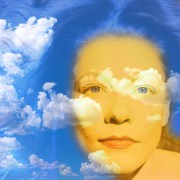 Photo: Getty Images
Photo: Getty Images
You might be familiar with the popular song “Vertigo” by U2, but chances are you don’t know a lot about the actual health condition called vertigo.
According to an entry on MedlinePlus, which is a service of the National Institutes of Health and the U.S. National Library of Medicine, “vertigo is a sensation of motion or spinning that is often described as dizziness.”
However, don’t confuse vertigo with being a little dizzy or light-headed. According to MedlinePlus, “people with vertigo feel as though they are actually spinning or moving, or that the world is spinning around them.” The condition vertigo comes in two types –- one is associated with the brain and the other is associated with problems in the inner ear.
The inner ear has an area that takes care of balance, and if that is negatively affected, then peripheral vertigo can happen, according to MedlinePlus. Peripheral vertigo can also occur if the vestibular nerve is damaged. If the brainstem or cerebellum are injured, then central vertigo can occur.
Different injuries or other health conditions to these parts of the body that are affected can then lead to vertigo. For example, inflammation of the vestibular nerve can lead to vertigo, or migraines and seizures could lead to vertigo (both conditions affect the brainstem).
Meniere’s disease can also cause vertigo, and it is characterized by hearing loss and ringing in the ears, as well as vertigo, according to www.emedicinehealth.com.
An entry on a website of the National Center for Biotechnology Information states that Meniere’s disease is associated with swollen canals in the inner ear, but the cause is generally unknown. Risk factors can include having a middle ear infection, head injury, syphilis, allergies, alcohol use, fatigue, having a viral illness, respiratory infection, smoking, stress and taking some medications like aspirin.
An article on www.emedicinehealth.com stated that some symptoms of vertigo are feeling as if “the room is spinning around you,” feeling disorientated and like you’re in motion, nausea, vomiting, sweating, unusual movements of the eye, ringing in the ears, hearing issues, weakness, speaking and walking issues, and an altered state of consciousness. Symptoms should not be mixed up with those of motion sickness, lightheadedness and fainting.
In some cases of vertigo, treatment is required, according to www.emedicinehealth.com. For example, if there are issues in the inner ear, surgery might be necessary. Other treatment options include medication, specific rehabilitation exercises and treatments like particle repositioning maneuver, which changes placement of minuscule stones in the inner ear.
According to the website, people with vertigo need to be careful if their balance is affected by the condition so they don’t injure themselves by falling. Also, if they are prone to strokes, they need to maintain healthy blood pressure and cholesterol levels, and avoid smoking.
Besides a physical exam, a doctor can check for vertigo through blood tests, an electroencephalogram (EEG), a head CT, a lumbar puncture and an MRI head scan, among other tests, according to MedlinePlus. As soon as you start feeling symptoms associated with vertigo, it’s important to see a doctor right away because severe health conditions could cause vertigo in rare cases, such as a brain lesion.
Sources:
MedlinePlus. Vertigo-associated disorders. Vertigo-associated disorders: MedlinePlus Medical Encyclopedia. Web. Nov. 1, 2011. http://www.nlm.nih.gov/medlineplus/ency/article/001432.htm
Emedicinehealth. Vertigo Symptoms. Vertigo Causes, Symptoms, Treatment – Vertigo Symptoms on eMedicineHealth. Web. Nov. 1, 2011. http://www.emedicinehealth.com/vertigo/page2_em.htm#Vertigo%20Symptoms
Emedicinehealth. Meniere’s Disease Overview. Meniere’s Disease Causes, Symptoms and Treatments on eMedicineHealth.com. Web. Nov. 1, 2011. http://www.emedicinehealth.com/meniere_disease/article_em.htm#Meniere%27s%20Disease%20Overview
A.D.A.M. Medical Encyclopedia. National Center for Biotechnology Information. Meniere’s disease. Meniere’s disease – PubMed Health. Web. Nov. 1, 2011. http://www.ncbi.nlm.nih.gov/pubmedhealth/PMH0001721
Reviewed November 2, 2011
by Michele Blacksberg RN
Edited by Jody Smith




Add a Comment3 Comments
When my vertigo attacks, I not only feel like my world is spinning I also hear a high pitch sound, like the Tinnitus. After consulting my doctor, he told me I have Tinnitus which occasionally attacks specially when I am stressed or depressed. It triggers. Right now, I am undergoing a natural treatment from www.tinnitusgoaway.com/ to boost my strength against vertigo and Tinnitus. I have learned valuable info on your article about vertigo.
March 13, 2013 - 12:34amThis Comment
this article on vertigo was very informative and eye opening. last time i told the doctor i had vertigo she put me on sleeping pills. hopefully armed with this article i'll be able to get her to listen more closely
November 4, 2011 - 1:30pmThis Comment
Hey be sure to check out (and like) an awesome interview with the Grammy Award wining Producer Steve Lillywhite, who has worked with artists such as U2, the Talking Heads, the Rolling Stones, etc at: http://culturecatch.com/vidcast/steve-lillywhite
November 4, 2011 - 10:11amThis Comment